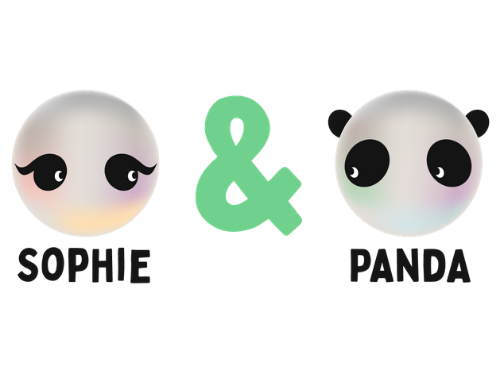
Deciding to recycle items is just the first step. You also want to make sure the items are recycled correctly. Below you will find common recyclables and related recycling information.
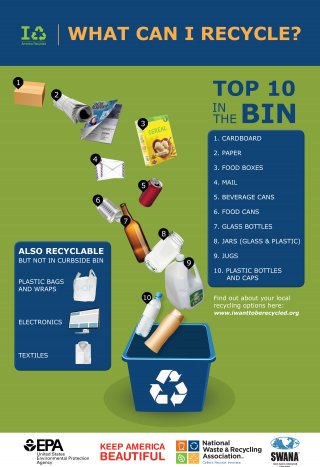
Paper/Cardboard
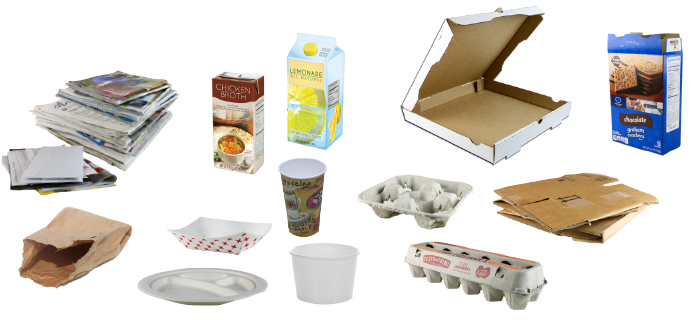
Paper makes up 23 percent of municipal solid waste (trash) generated each year, more than any other material. Americans recycled about 68 percent of the paper they used in 2018. This recovered paper is used to make new paper products, which saves trees and other natural resources. Most community or office recycling programs accept paper and paper products. Check what your community or office program accepts before you put it in the bin. Look for products that are made from recycled paper when you shop. Better yet, consider if you really need to print in the first place.
Below are answers to frequently asked questions on paper and cardboard products. While general answers are provided, your local program may have different rules. Check with your local recycling program to learn if they accept these items.
Can I recycle newspapers?
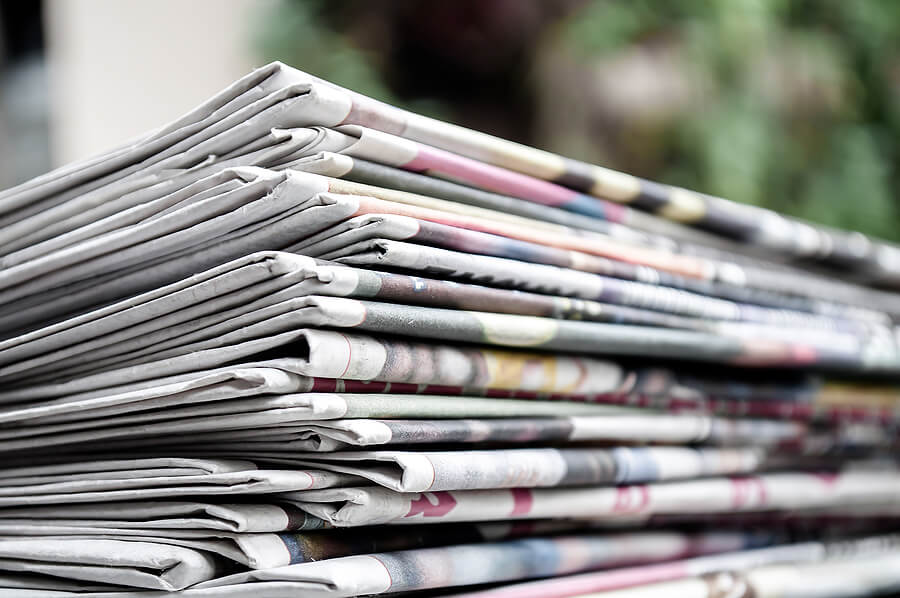
Yes, newspapers can be recycled.
Can I recycle magazines?

Yes, magazines can be recycled.
Can I recycle pizza boxes?

Yes! Pizza boxes can be recycled, even if they have grease in them. Make sure to remove any food scraps from the box and flatten it before placing it in the bin.
Can I recycle mail?
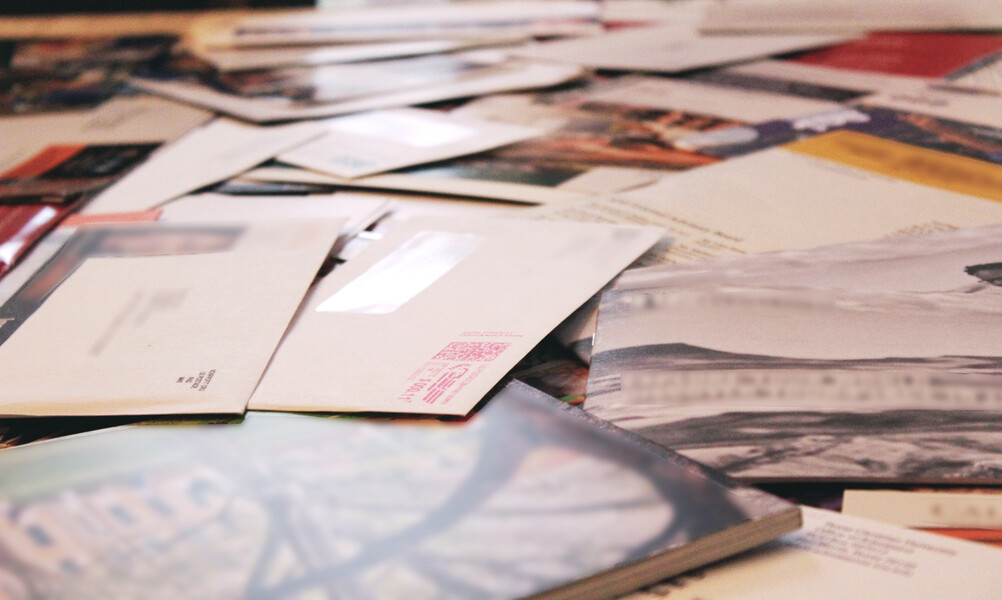
Yes! Even envelopes with plastic windows can be recycled.
Are paper and cardboard takeout containers recyclable?
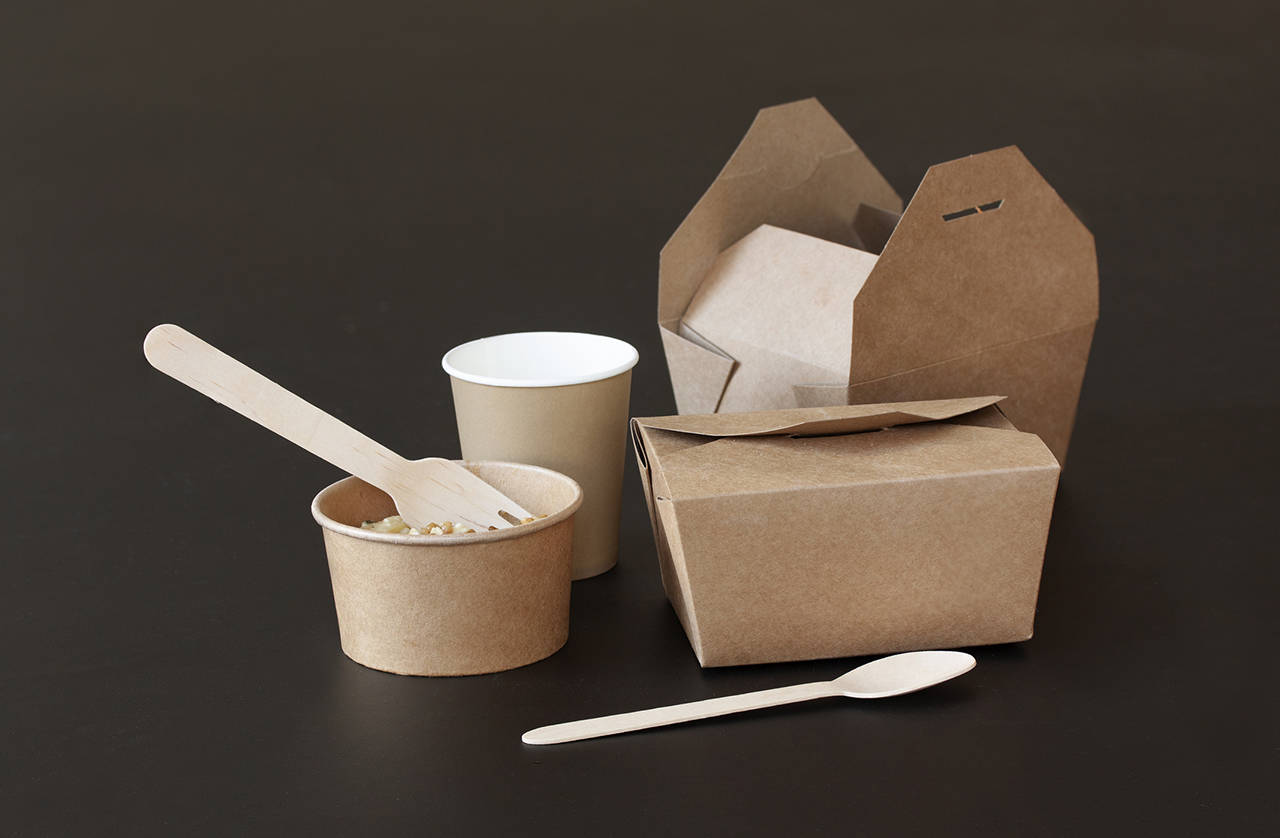
It depends on how much food is left on them. Try rinsing or scraping the residue off to clean it. “Spatula-clean” is clean enough to recycle! Otherwise, containers contaminated with food cannot be recycled.
Can cardboard containers and boxes be recycled?

Yes, make sure to flatten any boxes before placing them in the bin. Examples of recyclable cardboard containers are some egg cartons, cereal boxes, and shoe boxes.
Can shredded paper be recycled?
:max_bytes(150000):strip_icc()/GettyImages-1166645721-d7588ae895f644c1a8abbaa8c83ba22e.jpg)
It depends on your local recycling program.
Can books be recycled?

If the book is still in good condition, try donating it! Schools, places of faith, charities, and non-profits will often accept book donations. If the book is not in usable condition, it can be recycled. Paperback books can be recycled as-is; remove the cover from a hardcover book before recycling it.
Can gift wrap be recycled?
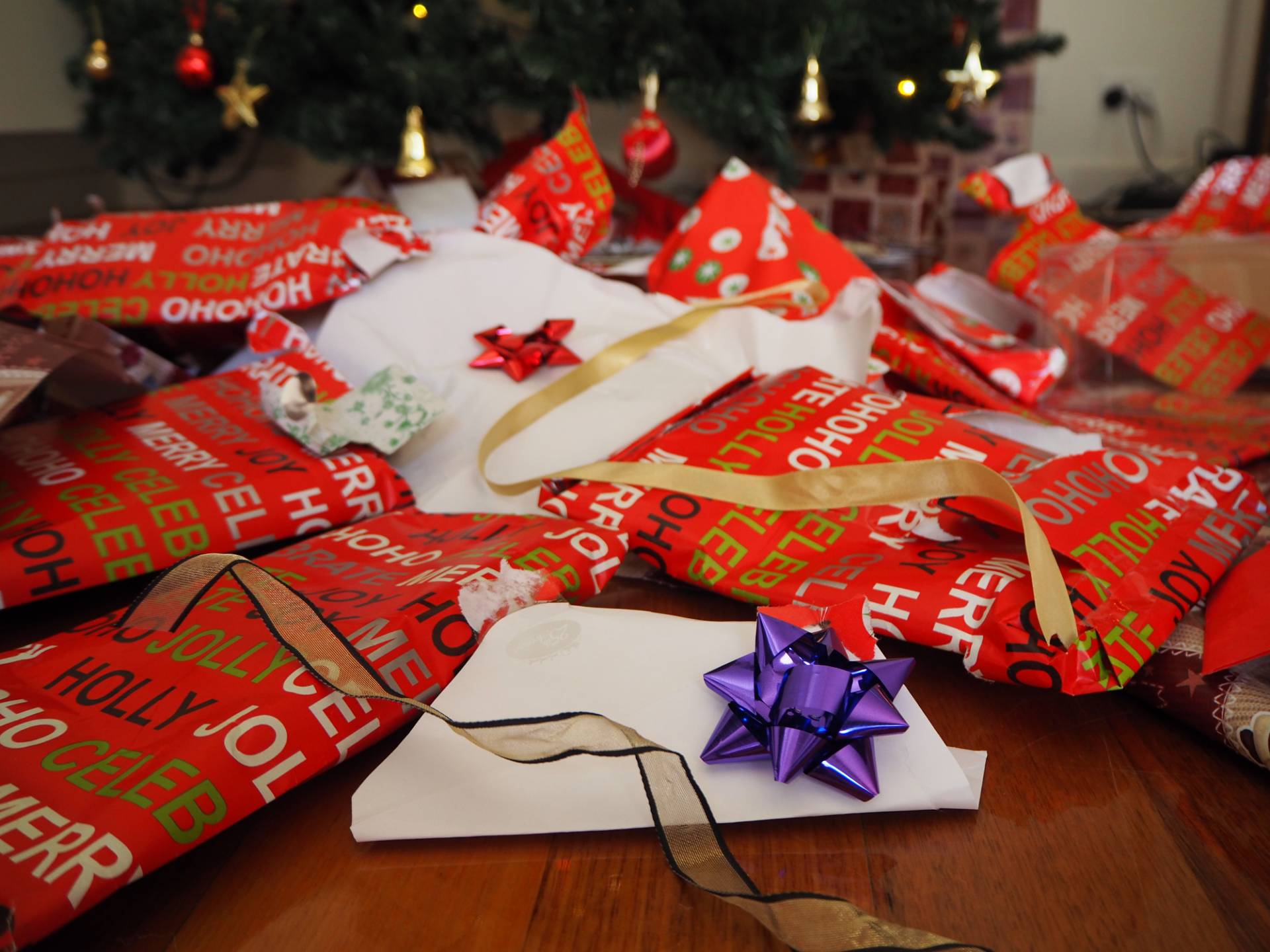
Paper gift wrap often is not recyclable when it has a shiny or laminated coating. If you use gift wrap, purchase a type that can be recycled or is made from recycled content. EPA encourages consumers to reuse gift bags, boxes, and tissue paper. Newspaper is an excellent alternative to gift wrap.
Plastics
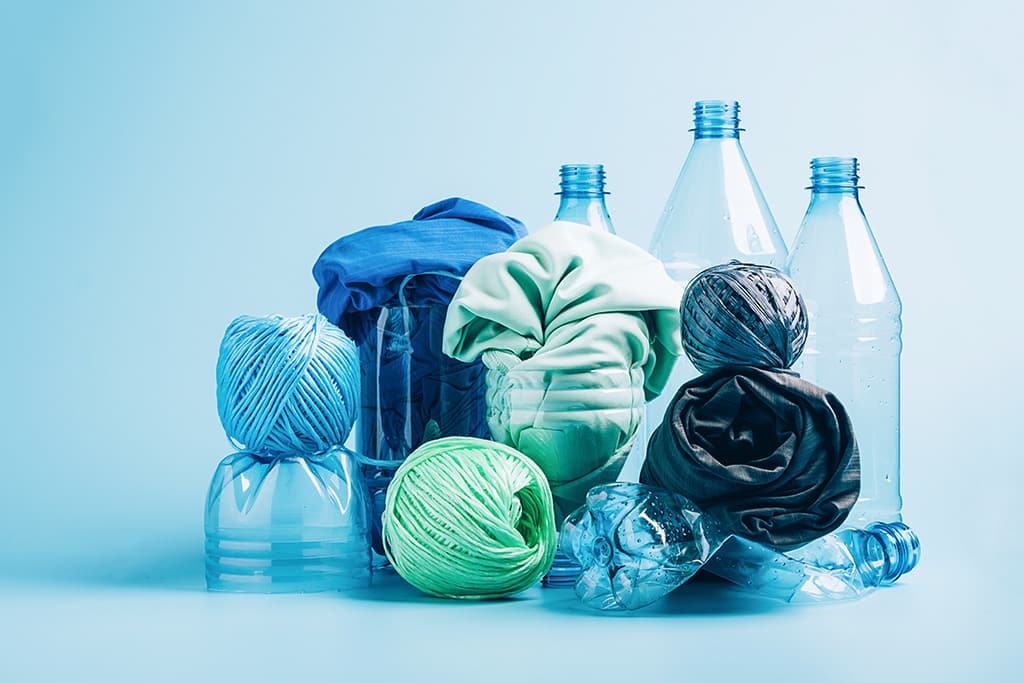
More than 35 million tons of plastics were generated in the United States in 2018 and only 8.7 percent was recycled. Some types of plastics are not accepted in community recycling programs. Check with your local recycling program to find out which types of plastic they accept. When possible, purchase products made from recycled plastic materials.
Can I recycle plastic bags, wraps and films?

These items are recyclable, but they cannot go in your household recycling bin. Retail and grocery stores often accept these materials for recycling. If necessary, be sure to cut off the sealable zippers from sandwich bags before recycling them.
Can plastic bottles and caps be recycled?
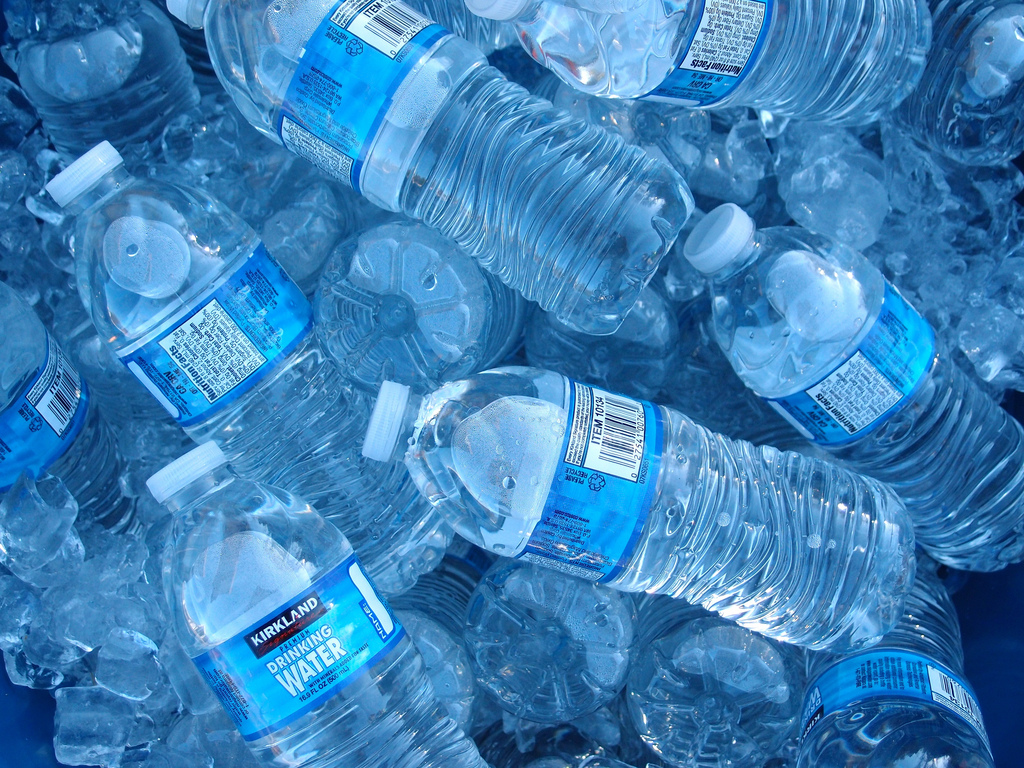
Yes, typically the caps and labels can be left on the bottles as well.
Can polystyrene foam (styrofoam) be recycled?
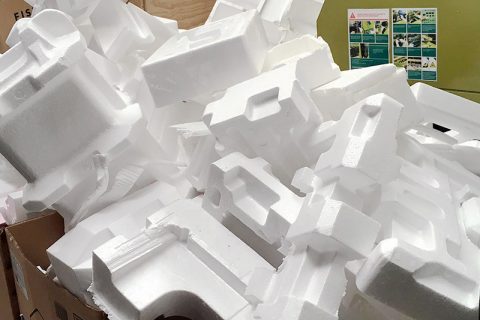
Very few localities accept styrofoam in curbside recycling.
Can plastic containers, cups and utensils be recycled?

It depends on what types of plastic the containers and cups are made of and whether your local program accepts them. Items with food debris cannot be recycled. Plastic utensils also cannot be recycled.
Can I recycle compostable or bio-based plastics?
Compostable Plastic: No. Compostable plastics are not intended for recycling and can contaminate and disrupt the recycling stream if mixed with non-compostable plastics. If your community does not have a composting recycling pick-up program that accepts compostable plastic, contact your garbage/recycling company or local government to find out if there are any drop-off locations for your compostable plastic items.
Biobased Plastics: To determine what waste disposal options are available for a biobased plastic item, it is necessary to read the product’s label as to its compostability and recyclability.
What do the symbols mean on the bottom of plastic bottles and containers?
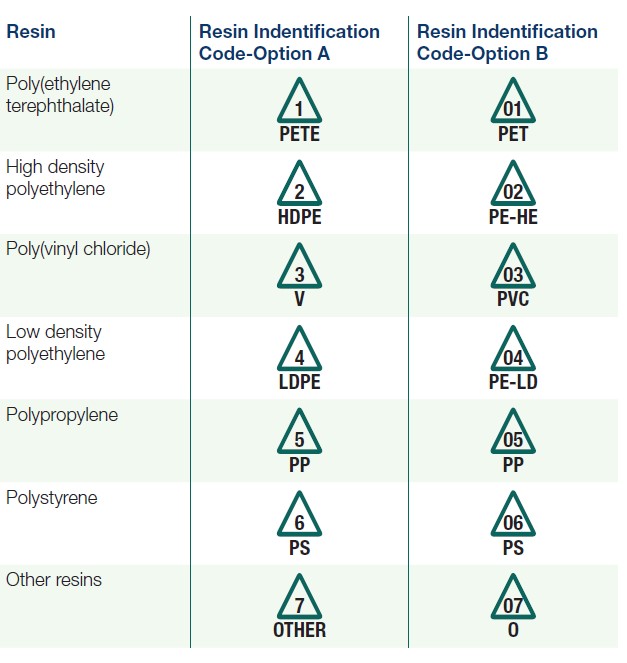
These symbols were created to identify the type of plastic used to make the container. This can help you determine whether the item is recyclable by your local program. The resin number is contained in a triangle that looks very similar to the recycling symbol. However, this symbol does not necessarily mean it can be collected for recycling in your community.
Glass

Glass, especially glass food and beverage containers, can be recycled over and over again. In the United States in 2018, 12.3 million tons of glass were generated, 31.3 percent of which was recycled. Making new glass from recycled glass is typically cheaper than using raw materials.
Below are frequent questions on glass products. While general answers are provided, your local program may have different rules. Check with your local recycling program to find out if they accept these items.
Can I recycle different glass colors/types together?
Most curbside recycling programs accept different glass colors and types mixed together and then sort the glass at the recovery facility.
Can I recycle broken glass?
No, broken glass should not go into the recycling bin. Glass shards can harm workers and damage equipment.
Can I leave my metal bottle cap on my glass bottle when I recycle?
No, metal bottle caps should be recycled separately from the glass bottles.
Aluminum
In 2018, 3.9 million tons of aluminum municipal solid waste was generated. The total recycling rate for aluminum items was 34.9 percent. Both aluminum cans and foil can be recycled.
Below are frequent questions on aluminum products. While general answers are provided, your local program may have different rules. Check with your local recycling program to find out if they accept these items.
Should aluminum cans be crushed before recycling them?
No, generally, aluminum cans should not be crushed before they are recycled. For areas with single-stream recycling, crushed cans are harder to detect when being sorted at recycling facilities. If you live in an area with multi-stream recycling, crushing cans is not an issue.
Can I recycle aluminum foil?
Yes, aluminum foil can be recycled. Make sure to remove any food residue before recycling.
Batteries
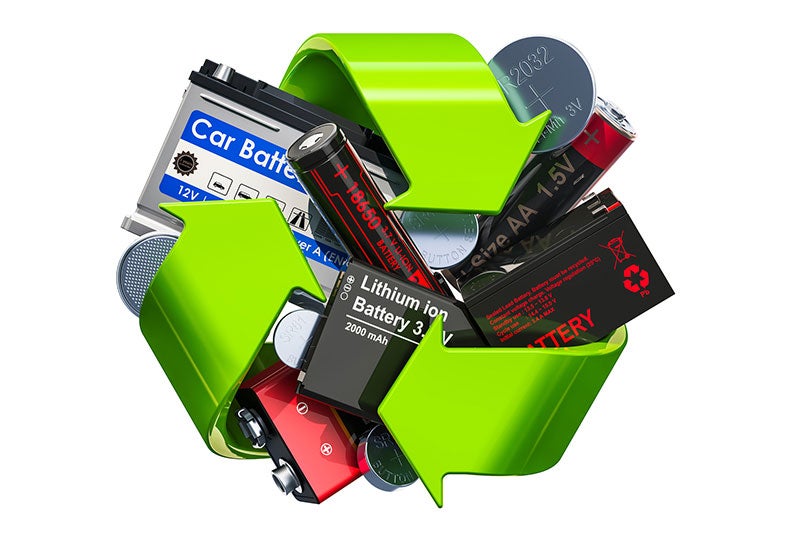
Lead-acid batteries are one of the most recycled products. In 2018, 2.9 million were recycled, representing 99 percent of generation. Recycling rates of other battery types are not as well tracked. Although batteries are recyclable, most batteries, including lithium-ion, lithium metal, lead-acid, nickel cadmium, and other rechargeable batteries, should NOT go in household garbage or recycling bins. These batteries require special handling and should be taken to specialty drop-off locations or household hazardous waste collection points. Check out our resources on how to manage and recycle your used household batteries and your used lithium-ion batteries.
- Dry-Cell Batteries are used in a variety of electronics and include alkaline and carbon zinc (9-volt, D, C, AA, AAA), mercuric-oxide (button, some cylindrical and rectangular), and silver-oxide and zinc-air (button). Look for in-store recycling bins or community collection events to dispose of these batteries.
- Lithium-ion Batteries are used in many rechargeable products such as electronics, toys, wireless headphones, handheld power tools, small and large appliances, electric vehicles, and electrical energy storage systems. Do NOT put them in the trash or municipal recycling bins. Household lithium-ion batteries can be brought to dedicated in-store recycling bins or household hazardous waste collection events for disposal. Medium- and large-scale electric vehicle or energy storage batteries should be returned to the manufacturer, automobile dealer, or installation company for management at end of life.
- Lithium Metal Batteries are similar to lithium-ion batteries but are not rechargeable. They are commonly used in products such as cameras, watches, remote controls, handheld games, and smoke detectors. Do NOT put them in the trash or municipal recycling bins: look for dedicated in-store recycling bins or household hazardous waste collection events for disposal.
- Lead-Acid Batteries can be found in automobiles, boats, snowmobiles, motorcycles, golf carts, wheelchairs, and other large transportation vehicles. Return lead-acid batteries to a battery retailer or local household hazardous waste collection program; do NOT put lead-acid batteries in the trash or municipal recycling bins.
- Other Rechargeable Batteries include nickel cadmium, nickel metal hydride, and nickel-zinc batteries. These batteries can be found in cordless power tools, cordless phones, cell phones, digital cameras, and small electronics. Do not put these rechargeable batteries in the trash or municipal recycling bins: look for dedicated in-store recycling bins or household hazardous waste collection events for disposal.
Electronics
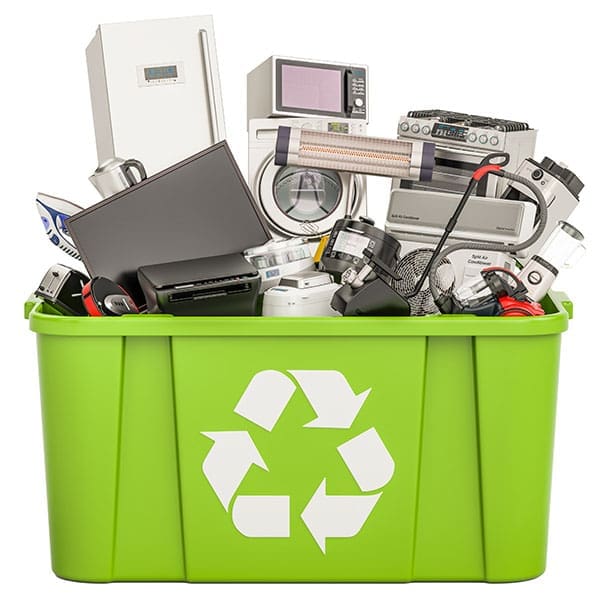
EPA estimates that 2.7 million tons of consumer electronics were generated in 2018. About 38.5 percent of these electronics were recycled. Electronics cannot be recycled curbside, but they can be dropped off at specific collection sites. Manufacturers and retailers offer several options to donate or recycle electronics, including cell phones, computers, and televisions. EPA has a list of manufacturers and retailers that offer options to recycle electronics. Before recycling electronics, delete all your personal information. Check with your local recycling facility for best ways to recycle electronics, and visit our Electronics Donation and Recycling page for more information.
Food
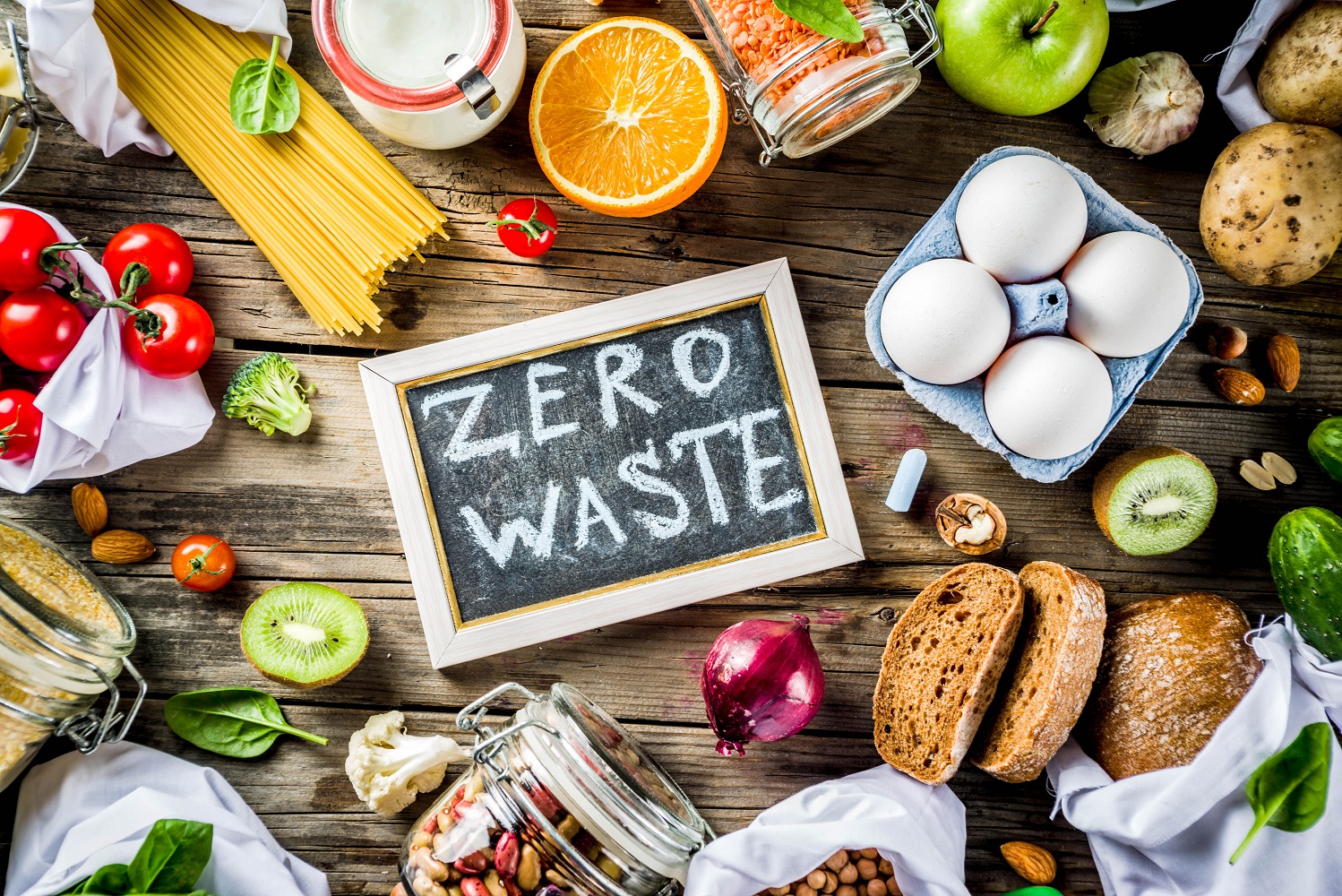
EPA estimates that 63.1 million tons of food waste was generated in the commercial, institutional, and residential sectors in 2018. Food cannot be recycled. However, throwing food into the trash is not the best management option. Food that ends up in landfills leads to methane emissions which contribute to climate change. EPA recommends reducing food waste by buying only what you need and by eating your leftovers. Composting is an environmentally-friendly method of food waste disposal. In 2018, about 4.1 percent of food waste was composted.
Learn more on how to reduce food waste and how to compost at home.
Lawn Materials

In 2018, about 35.4 million tons of yard trimmings were generated. Lawn materials cannot be recycled, but they can be composted. If you are unable to compost, check with your local community to learn if there is a yard trimming collection service near you.
Used Oil
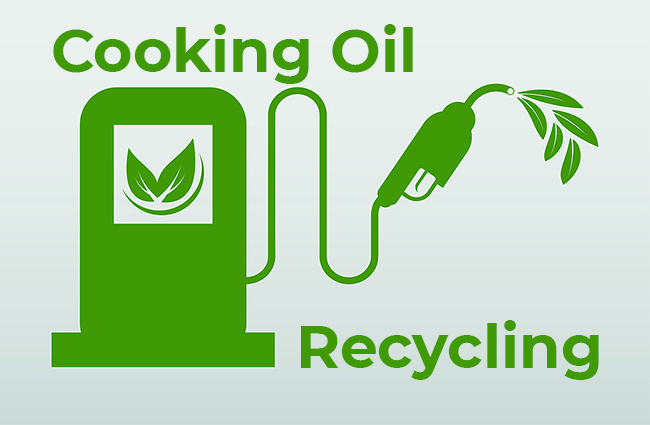
Never dump your used motor oil down the drain — the used oil from one oil change can contaminate one million gallons of fresh water. By recycling your used oil, you help keep our water supply clean. Additionally, it takes only one gallon of used oil to produce 2.5 quarts of new motor oil compared to 42 gallons of crude oil. Many garages and auto-supply stores that sell motor oil also accept oil for recycling.
Sources:
- All photos used in this blogpost are sourced from the internet, and the rights belong to their respective owners
- How Do I Recycle Common Recyclables | US EPA. (2023, December 1). US EPA. https://www.epa.gov/recycle/how-do-i-recycle-common-recyclables

